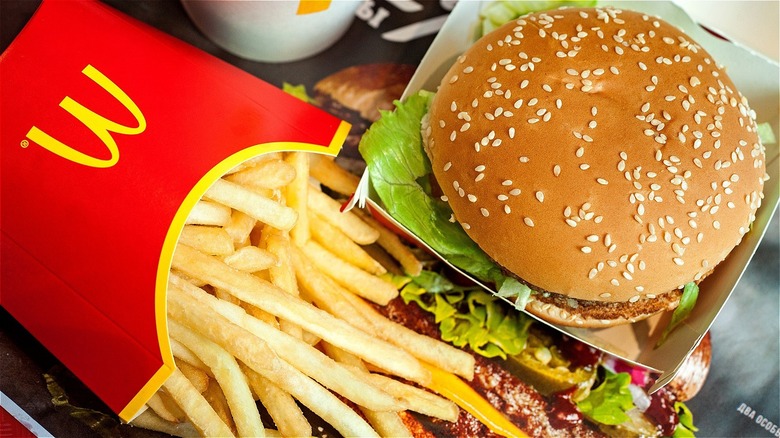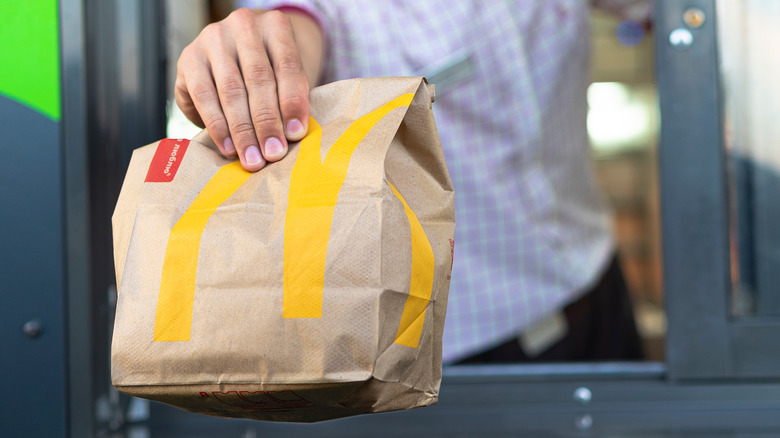This Former McDonald's CEO Thinks There Could Soon Be A 'Catastrophe'
Ever since the pandemic hit, more and more workers have been leaving their jobs. According to Insider, this trend still hasn't slowed down, and a record 4.5 million workers resigned from their jobs in November of 2021 alone. That number beat October 2021's previous record of 4.2 million workers. Fortune reports that the food sector has faced some of the most extreme numbers; hires in the sector have remained consistent, while resignations have increased, signaling that some employees are quitting in favor of better opportunities in the food market. Across many industries, hiring has increased, suggesting that workers in general have gained a newfound confidence to leave their previous roles for higher pay, better hours, and other benefits.
These numbers have alarmed quite a few figures, notably the former CEO of McDonald's, Ed Rensi, per Fox Business. Rensi fears that the U.S. will face an economic crisis as more jobs continue to open amid the ongoing labor shortage and "Great Resignation" — made into a worse "catastrophe" as more individuals enter retirement and the Omicron variant prompts more workers to stay home.
Why Rensi is calling the Great Resignation an economic catastrophe
Rensi made many dire warnings, per Fox Business. He stated that there is an increase in automation as a substitute for employees and that labor shortages have been forcing restaurants to change their menus and operating hours. He's feeling particularly grim about the upcoming warmer months: "Now we're coming into the season of the summer when we need part-time workers in restaurants and other places because of seasonality," he said. "We're never going to find them."
While Rensi warned of an impending economic crisis, he did not spell out exactly what the "catastrophe" would look like. Only time can tell if this prediction comes to fruition, but in the meantime, you can expect to see more and more change in the restaurant industry. Some predict that going out to eat might feel like more of a luxury than it was before the pandemic, while others feel confident that the food industry's flexibility should allow it to flourish, no matter what obstacles it faces, reports The New York Times.

